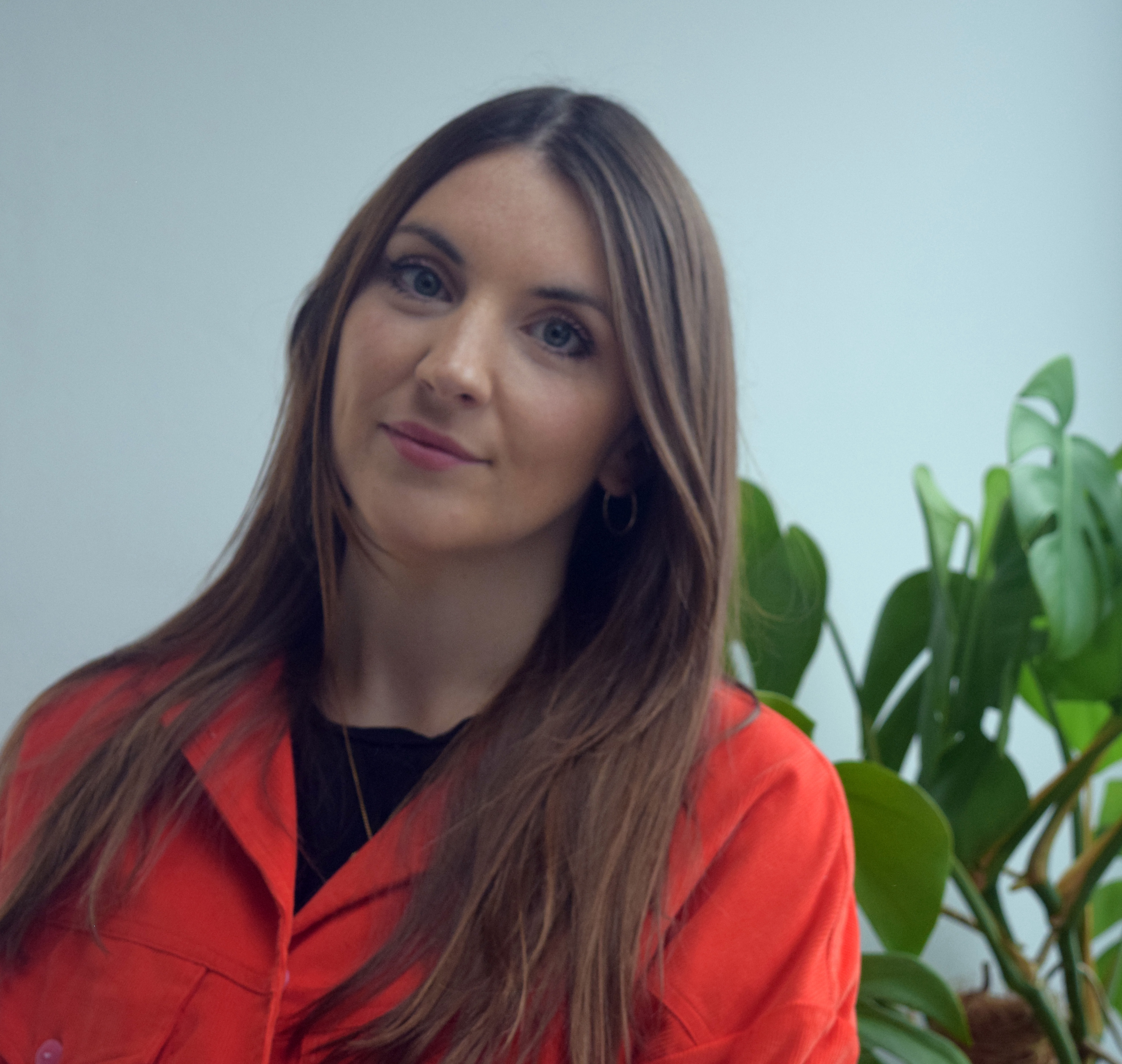Closing the gender gap in STEM: rewriting the code, reshaping the future
To celebrate this year’s International Day of the Girl, Marie Claire UK’s Editor-in-Chief Andrea Thompson joined forces with Barbie to co-host a panel discussion on how to get more girls pursuing careers in STEM

To celebrate this year’s International Day of the Girl, Marie Claire UK’s Editor-in-Chief Andrea Thompson joined forces with Barbie to co-host a panel discussion on how to get more girls pursuing careers in STEM
What did you want to be when you grew up? Whether it was an astronaut, a farmer, or a famous actor, the chances are that for a while, the possibilities seemed endless.
Sadly, research shows that young girls start developing limiting self-beliefs from the age of five. No longer believing that they can do or be anything, this loss of confidence is known as the Dream Gap.
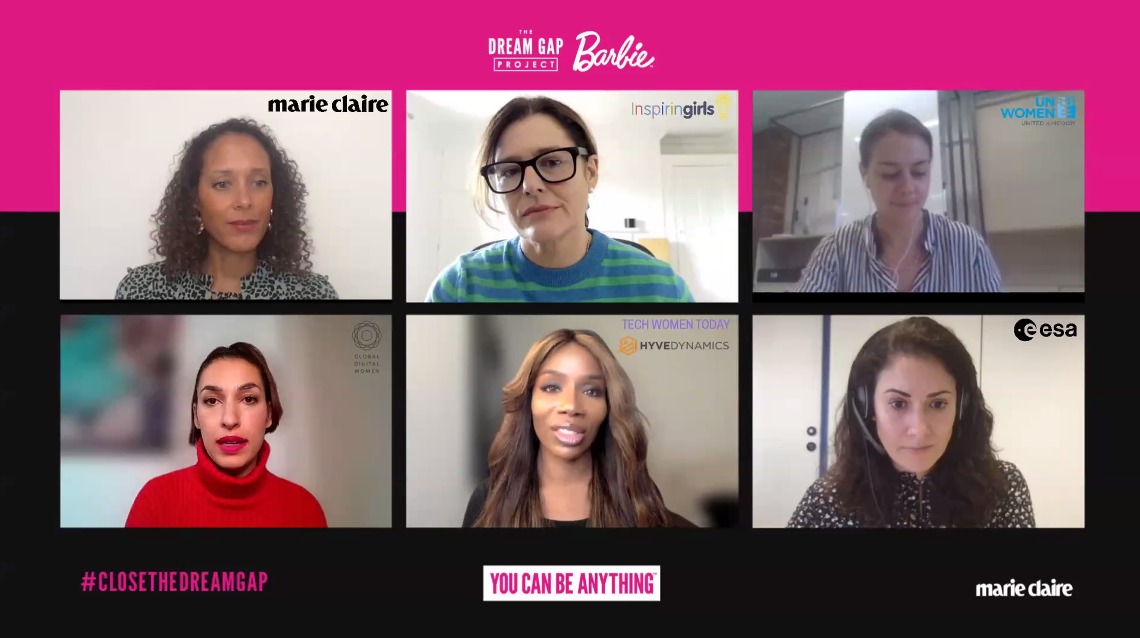
With its purpose of inspiring girls around the world that they can do and be anything, Barbie has been working to close the dream gap since 2018. Its ongoing Dream Gap Project aims to give girls the resources and confidence they need to achieve their dreams throughout their childhoods and beyond.
This is why, for the 10th International Day of the Girl, Marie Claire UK teamed up with Barbie, UN Women UK and other female leaders for a panel discussion on how to level the playing field for girls in STEM. You can watch a recording of the event here.
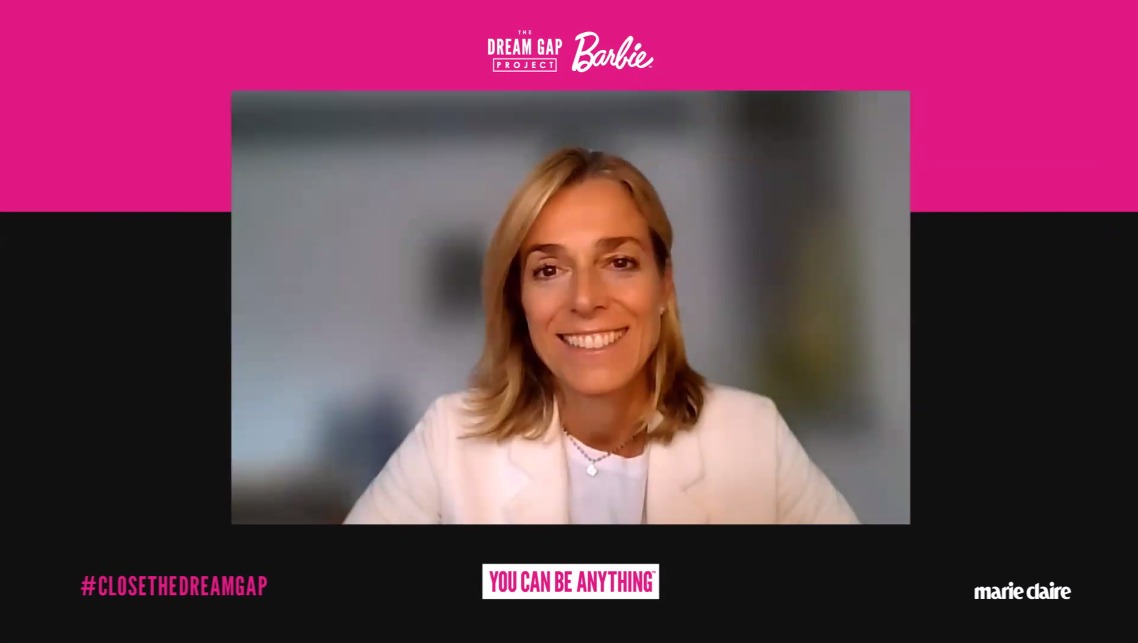
“Today is a very special day because we are celebrating the International Day of the Girl with all of you and with this amazing panel of women,” said Isabel Ferrer, Head of Dolls & Barbie for EMEA. “They are inspiring for all of us, and I'm sure they will be for the next generation of girls. Research shows that starting very early, at age five, many girls start to see that they are not as smart and capable as boys. We believe that they are supposed to be leading the agenda and can be anything.”
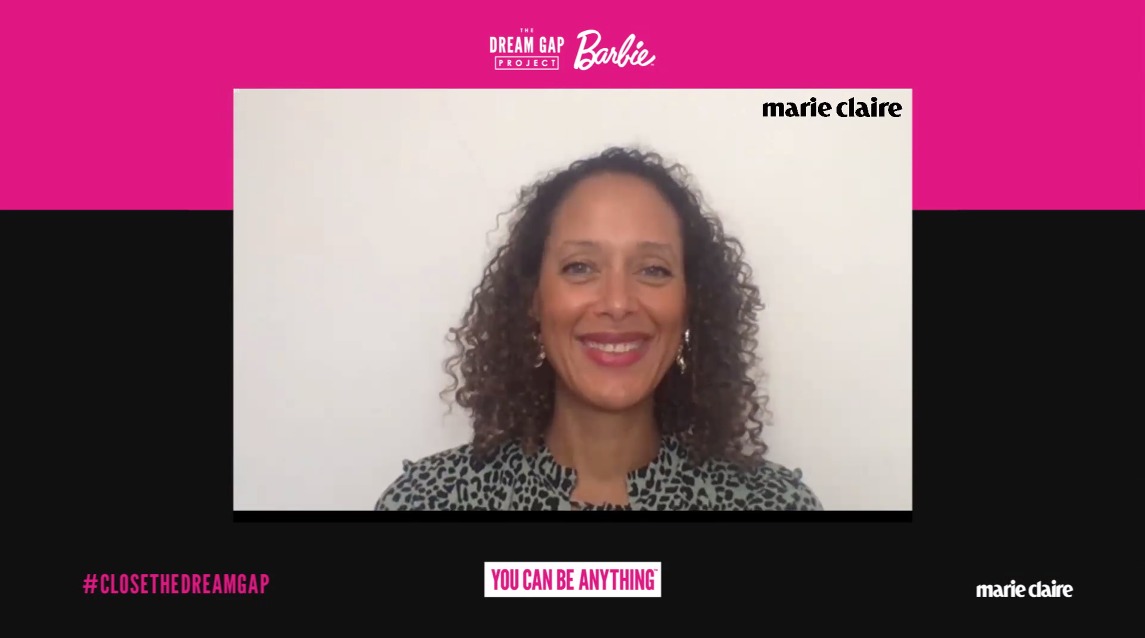
Andrea Thompson, Editor in Chief at Marie Claire UK, added: “For 34 years, Mary Claire has championed women's empowerment and gender equality. Like Barbie, we know that visible roles are key to smashing stereotypes and inspiring women and young girls to fulfil their potential.”
When you look at the representation of women in governments, leadership positions and STEM, the Dream Gap is hardly surprising. According to UN Women, 75% of parliamentarians, 73% of managers, 70% of climate negotiators and almost all peacemakers are men.
Women are sorely underrepresented in STEM careers too. Even though women make up 52% of the European population and 57.7% of higher-education graduates in the EU, only two out of five scientists and engineers are female. This means that many women are missing out on potentially fulfilling and highly paid careers in the industry, where employment growth rate is three times faster than for non-STEM jobs.
“Did you know that women make up less than a third of the workforce in science, technology, engineering and maths careers, or that the percentage of women appointed to tech boards in Europe has remained largely unchanged for the last decade?” said Andrea Thompson. “In an industry that's growing rapidly and offering the majority of the best paid and most secure careers of the future, this represents a worrying picture for gender equality.”

As part of its focus on girls and STEM careers in particular, Barbie has long been collaborating with the European Space Agency (ESA) and its only active European female astronaut Samantha Cristoforetti. Through awareness campaigns, educational materials, and funding, the collaboration aims to inspire girls everywhere to see the STEM field as a viable career option. For example, the latest awareness campaign saw Samantha — while holding the Barbie doll that Mattel modelled on her — answer girls’ questions about STEM from space.
Joining us on today's panel was the ESA's Sandra Benítez Herrera, who said: "We believe the inclusion of women and girls in science is of utmost importance. Women and girls are 50% of the intelligence and the talent worldwide. It's our dream to close the dream gap and stop these gender stereotypes. Since partnering with Barbie in 2018, we're seeing much more diversity in the number of applications we receive. This year we've invited 530 woman and 800 men through to phase two of the application process."
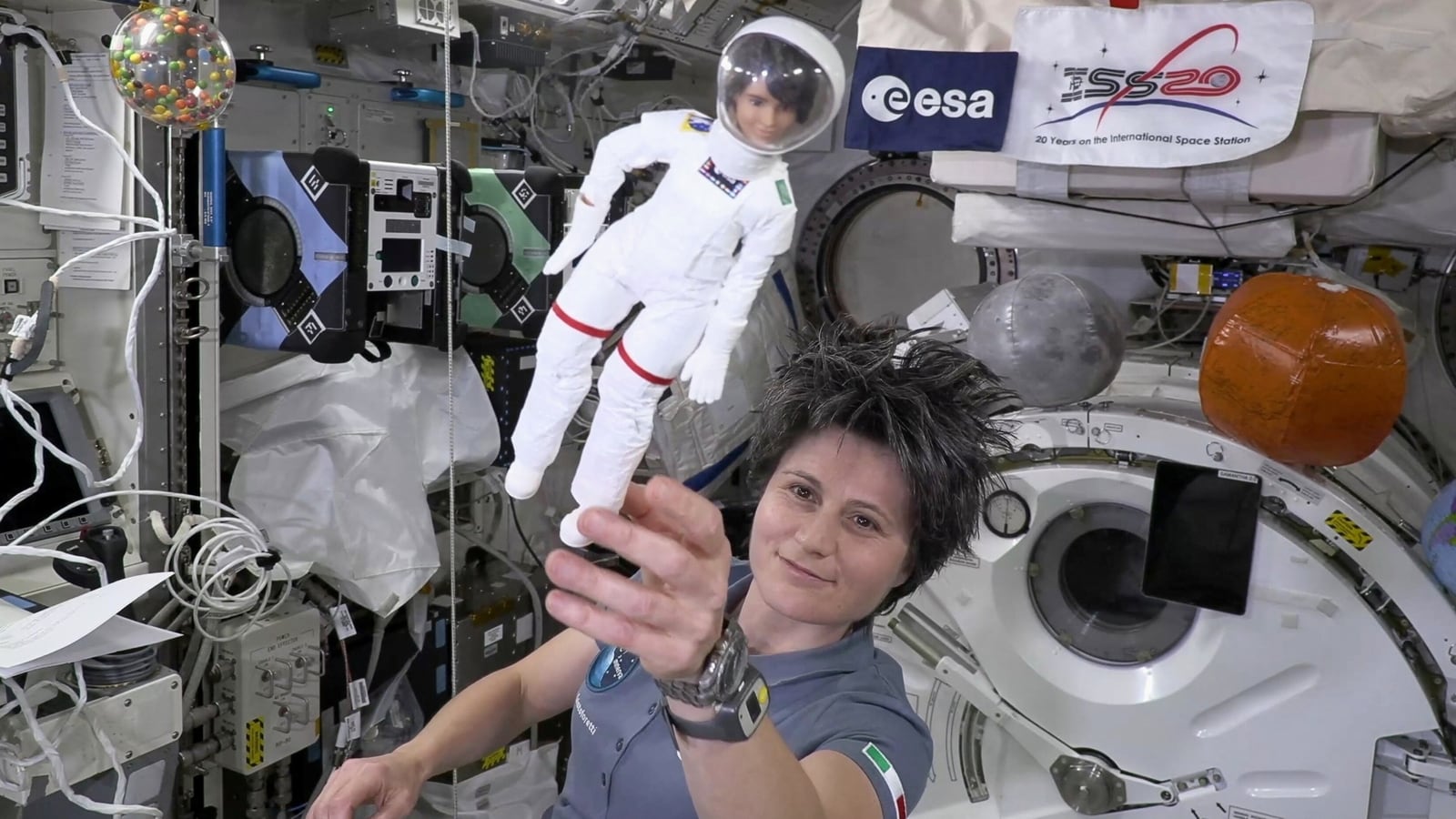
At today’s roundtable, Andrea Thompson asked what more can be done, joined by Claire Barnett, UN Women UK executive director, Cecilia Harvey, Founder, Tech Women Today and Co-founder, Hyve Dynamics, Miriam Gonzalez CEO Inspiring Girls Charity, plus Tijen Onaran, a 2022 Barbie Role model for women inspiring Entrepreneurs and founder of Global Digital Women and diversity consultancy ACI.
“So how can we close the stem gap?,” said Andrea Thompson. “What can we do to inspire girls to get into STEM careers. And once they're there, how can we retain them?”
Keep reading to find out the key takeaways and insights from our incredible panel.
So can we get more girls to pursue careers in STEM?
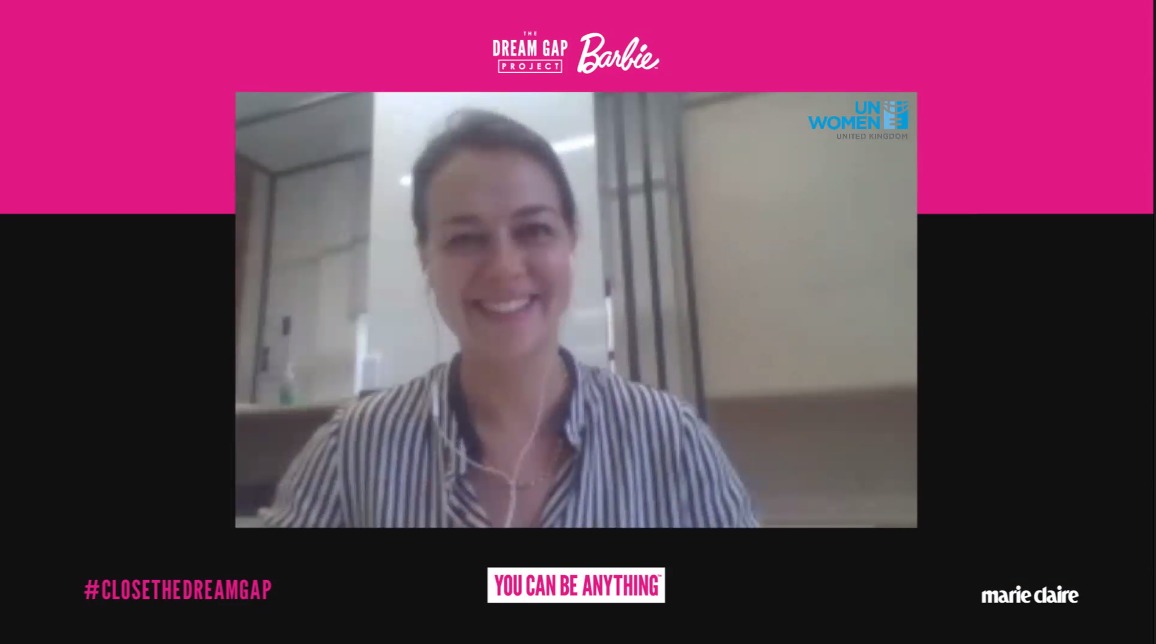
Claire Barnett, UN Women UK executive director: “Girls are telling us that there are very rational reasons why they can't progress, and we need to listen”
“We often forget that actually children are born believing strongly in equality,” said Claire Barnett. “The way in which girls dream inspires us all, but as they move through the world they're faced by so many barriers to those dreams becoming a reality. This is about recognising that girls don't need coaching. They don't need changing in order to be amazing. What we need to be doing is lifting up their voices and really giving them access to the biggest tools of power, because when girls get into those spaces, what they can do is incredible.”
Certain messages, ones that we might not even be aware of, have a powerful impact on both girls’ and boys’ expectations. “We find that globally, there is still a very large number of people who don't actually believe in equality,” said Claire. “Nearly two in five people worldwide believe that men should have stronger rights to jobs than women when those jobs run out. And so every challenge that comes our way, like climate change, has a gendered impact. Often women are the first to lose their jobs.”
In her experience, there are “very real” reasons why girls might hold self-limiting beliefs. “It's not a self-confidence issue. Today, on the streets of Iran, women are risking their lives to challenge the government. The level of self confidence that that requires is astounding,” said Claire. “But girls are taught that strong women are unlikable and soft women aren’t promotable. This makes it quite reasonable for girls to drop out. They see their mothers trying to balance their jobs with domestic work in the house and finding it really stressful. We’ve got to look at those barriers. If girls are telling us that there are very rational reasons why they can't progress, let's listen to them.”
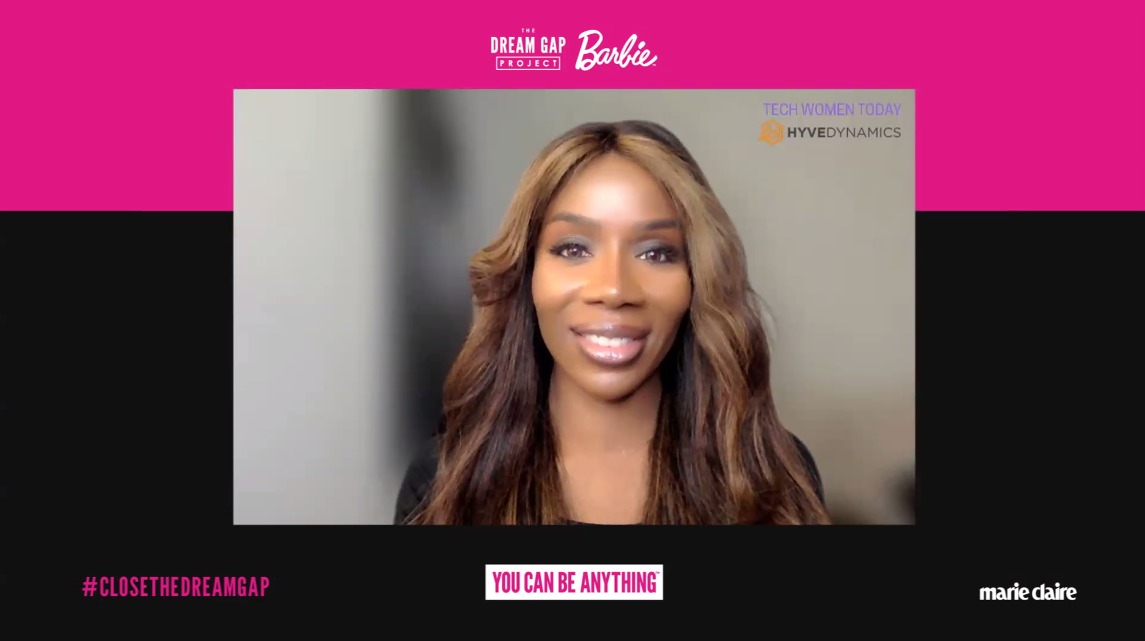
Cecilia Harvey, Founder, Tech Women Today and Co-founder, Hyve Dynamics: “We need to demonstrate the variety of careers that women can pursue in STEM”
“When I was a little girl, I didn't have any images in my neighbourhood, my family, or even in the media that show people that looked like me in positions of leadership,” said Cecilia Harvey. “When you don't see yourself represented, you can easily question yourself, or feel like you don't belong.”
She recalls a university trip to Wall Street that changed everything for her. “I met an alumna, Nancy, and I just remember thinking, ‘oh my goodness, she's so smart, she's beautiful and so fierce. I want to be Nancy when I grow up’. Through that experience, my dream gap was reduced. If I did not see Nancy, speak to Nancy, or hear her story, I would have never pursued a career in banking. I probably wouldn't be on this panel talking to you today.”
As well as emphasising the importance of authentic role models, Cecilia explained that we need to expand the definition of what it means to work in STEM. “We need to demonstrate the variety of careers that women can pursue in STEM,” she said. “You don’t necessarily have to be an engineer or programmer. You can work in fashion, art, health, sport or education and have a career in STEM. We need to present STEM careers in a way that shows those exciting opportunities.”
She added that as many young people today are selecting their careers for social impact, sustainability, inequality, we need to emphasise the fact that tech can be a force for good. “Companies are missing this opportunity to attracting diverse talent,” she said.
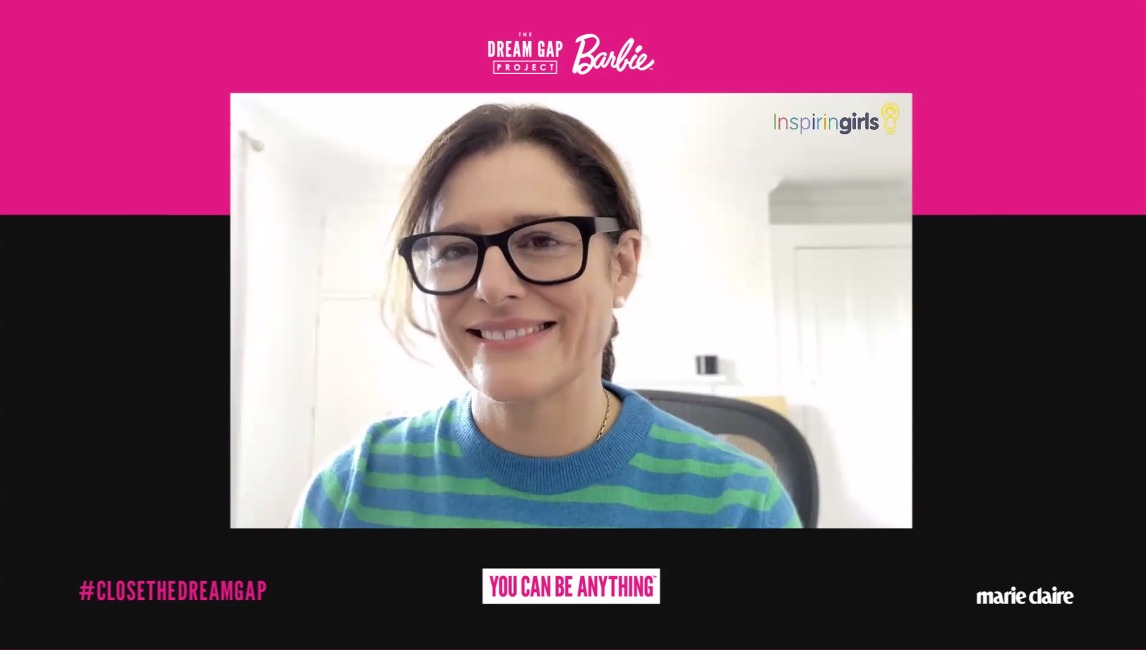
Miriam Gonzalez CEO Inspiring Girls Charity: “When girls fail, they feel that they are a failure”
“I have never had any problems with dreaming big, but I have always had a message from society telling me what you should be trying for something less or for something a bit less ambitious,” said Miriam Gonzalez. “And as recently as in the last five years that I have been living in Silicon Valley, I have seen that many women are still supporting their husbands as their primary role. This is no different from what was happening half a century ago in my village in Spain.”
In her work running Inspiring Girls Charity, Miriam has seen common themes emerge. “We work in 30 very different countries, from Algeria, to the US, to Singapore, to Chile,” she said. “We are in lots of different areas, from rural to urban. The diversity of the girls and the schools we work with is enormous. And yet, we find some common elements no matter where we are.”
One of those common elements is that girls all over the world suffer from a fear of failure. “Fear of failure in girls is much higher in girls than in boys,” Miriam explained. “When boys fail, they simply say, I’m failing at this. But when girls fail, they feel that they are a failure. We really need to work out what’s going on with those emotions because they limit the dreams and the potential of girls. It also has an effect on STEM, because those are subjects that require a lot of trial and error. If you're ready to make a mistake, correct it and to handle that mental process, it will be much easier for you.”
And if she could make one change today, to drive a more equal future? “Instead of wanting to be influencers on social media, I want to see girls dream of being the owners and founders of social media platforms,” said Miriam.
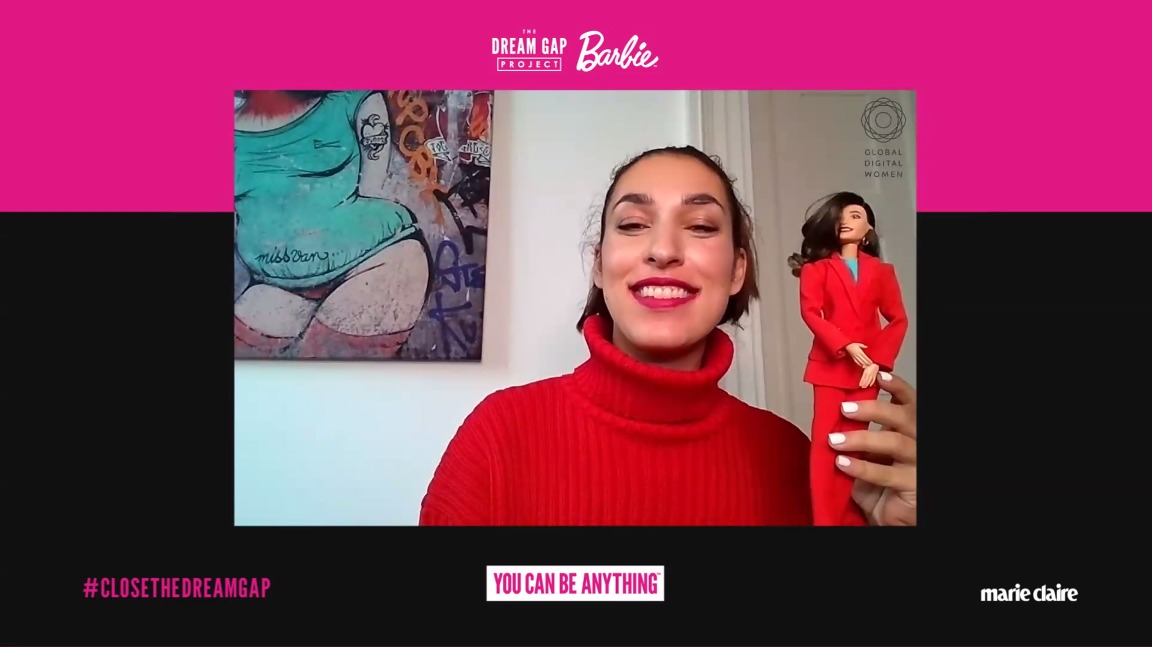
Tijen Onaran, 2022 Barbie Role model for women inspiring Entrepreneurs and founder of Global Digital Women and diversity consultancy ACI: "Empowerment starts with self-empowerment"
“Seeing is believing, so if you can see it, you can be it,” said Tijen Onaran. “That’s why it is so important for me to show that a person like me, with Turkish roots and with a migration background, can become an entrepreneur in Germany. We have to show that it's pretty normal. And I don't want to be perfect. It's not my goal: being imperfect for me is more attractive. I receive more messages online when I talk about my failures. And as an entrepreneur, you fail every day!”
Tijen wanted to “to change the system” which is why she became an investor. “Men tend to invest in other men,” she said. “That’s why I now invest in around 10 female founded startups.”
Change can also start from within. “While we need quotas and D&I structures in companies, empowerment starts with self-empowerment,” said Tijen. “You, as a woman, need to make this commitment with yourself that you want to start a career or become a leader. And we need to push other women, whether it's a like or comment on social media, or recommending someone for a job. Men have been doing this for each other for years.”
However, Tijen adds that it’s not just up to women to bring about equality. “It has a lot to do with the men out there. It’s not only the work of women to push themselves to become more visible. and to be bold and self confident. It's also about educating men and showing them that diversity is a good performance driver for the economy. It's not just a charity project for companies.”
Marie Claire Newsletter
Celebrity news, beauty, fashion advice, and fascinating features, delivered straight to your inbox!
-
 The viral 75 Medium challenge claims to be a friendlier alternative to the 75 Hard. So what do experts reckon?
The viral 75 Medium challenge claims to be a friendlier alternative to the 75 Hard. So what do experts reckon?Restrictive or effective?
By Katie Sims
-
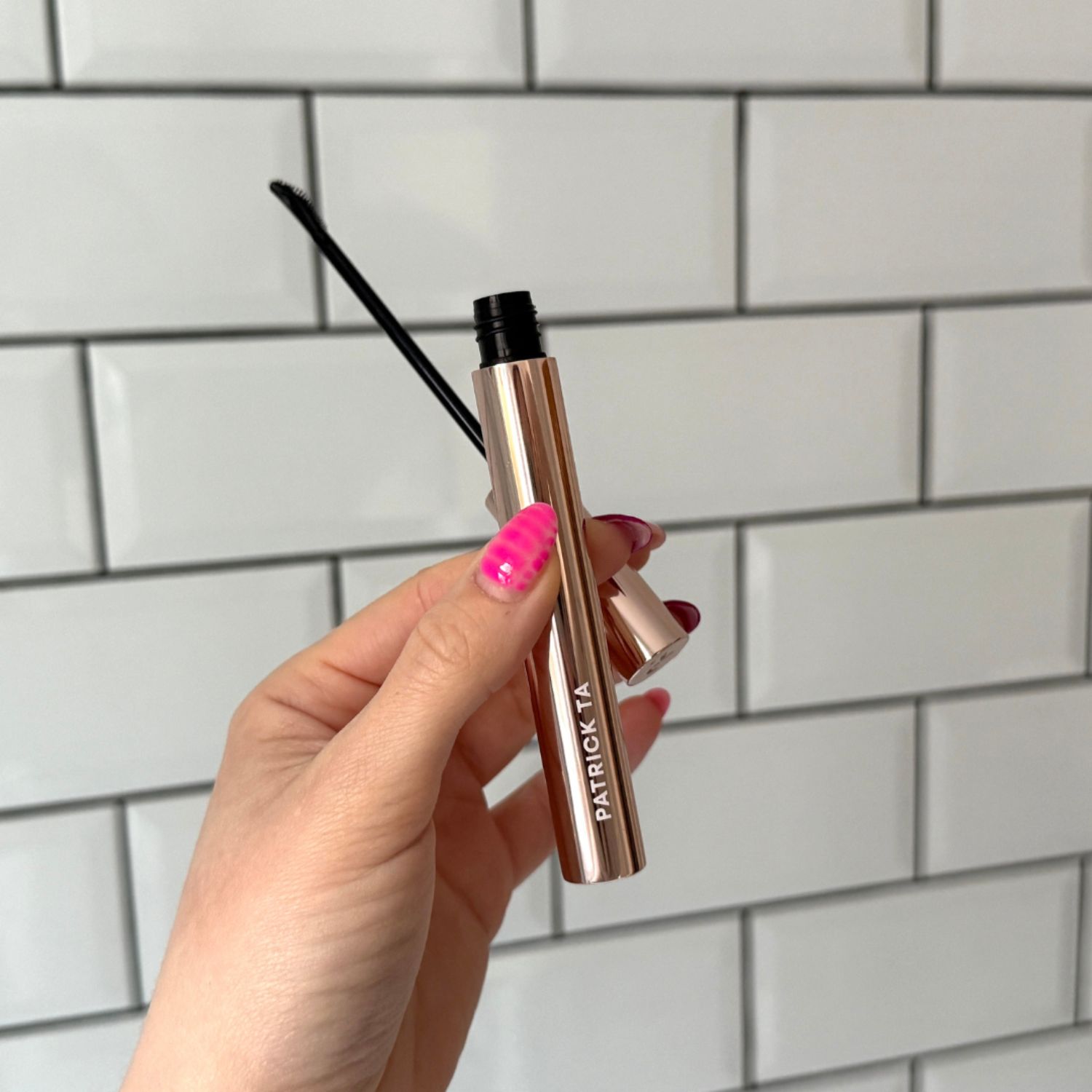 This is, without question, the best brow lamination-style gel I've ever used—and it rakes in compliments
This is, without question, the best brow lamination-style gel I've ever used—and it rakes in complimentsIf you like a lasting brushed-up brow look, you need this
By Lucy Abbersteen
-
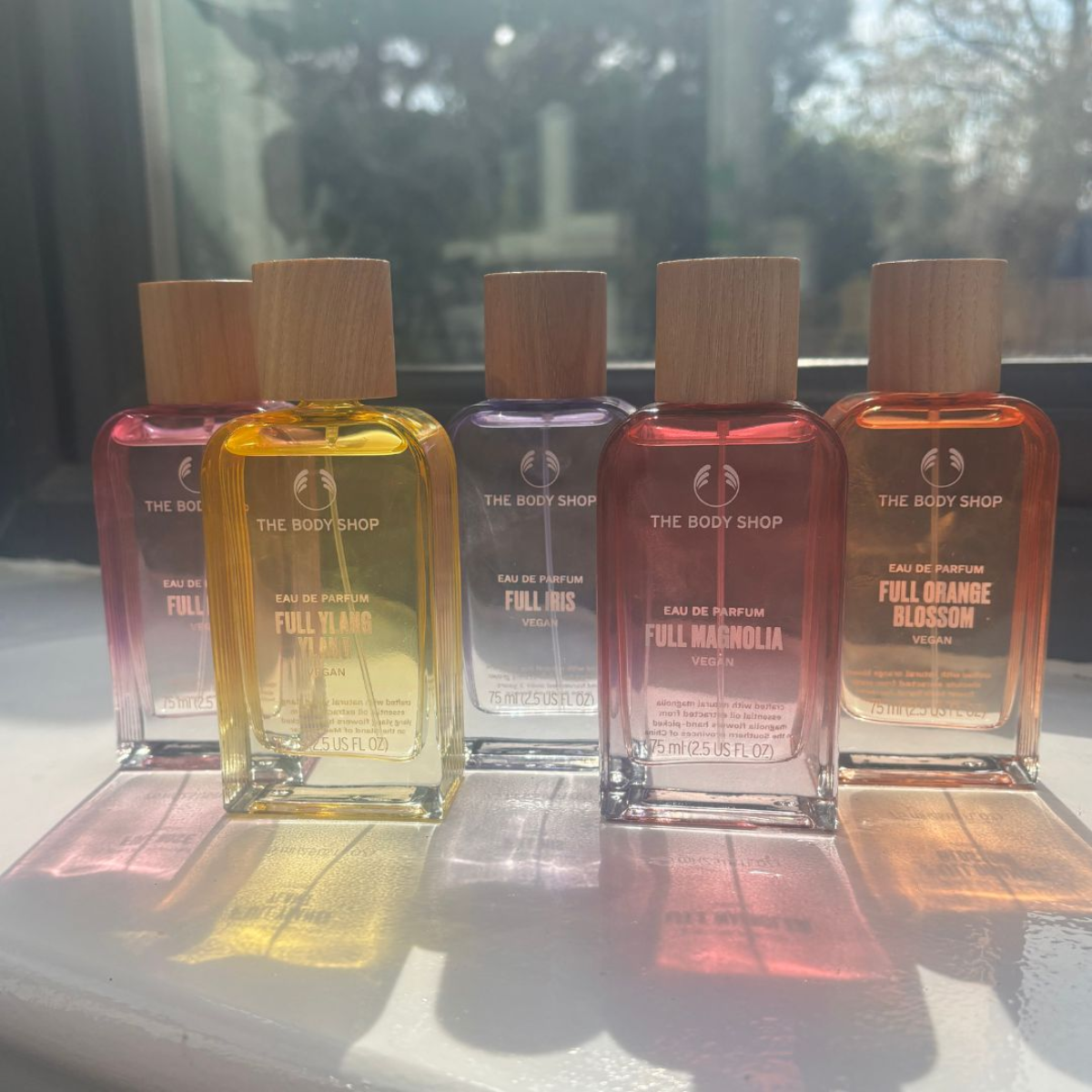 This new floral perfume collection is crying out for sunny weather—I can’t believe they’re all this good and under £45
This new floral perfume collection is crying out for sunny weather—I can’t believe they’re all this good and under £45Luxury notes on a budget
By Matilda Stanley
